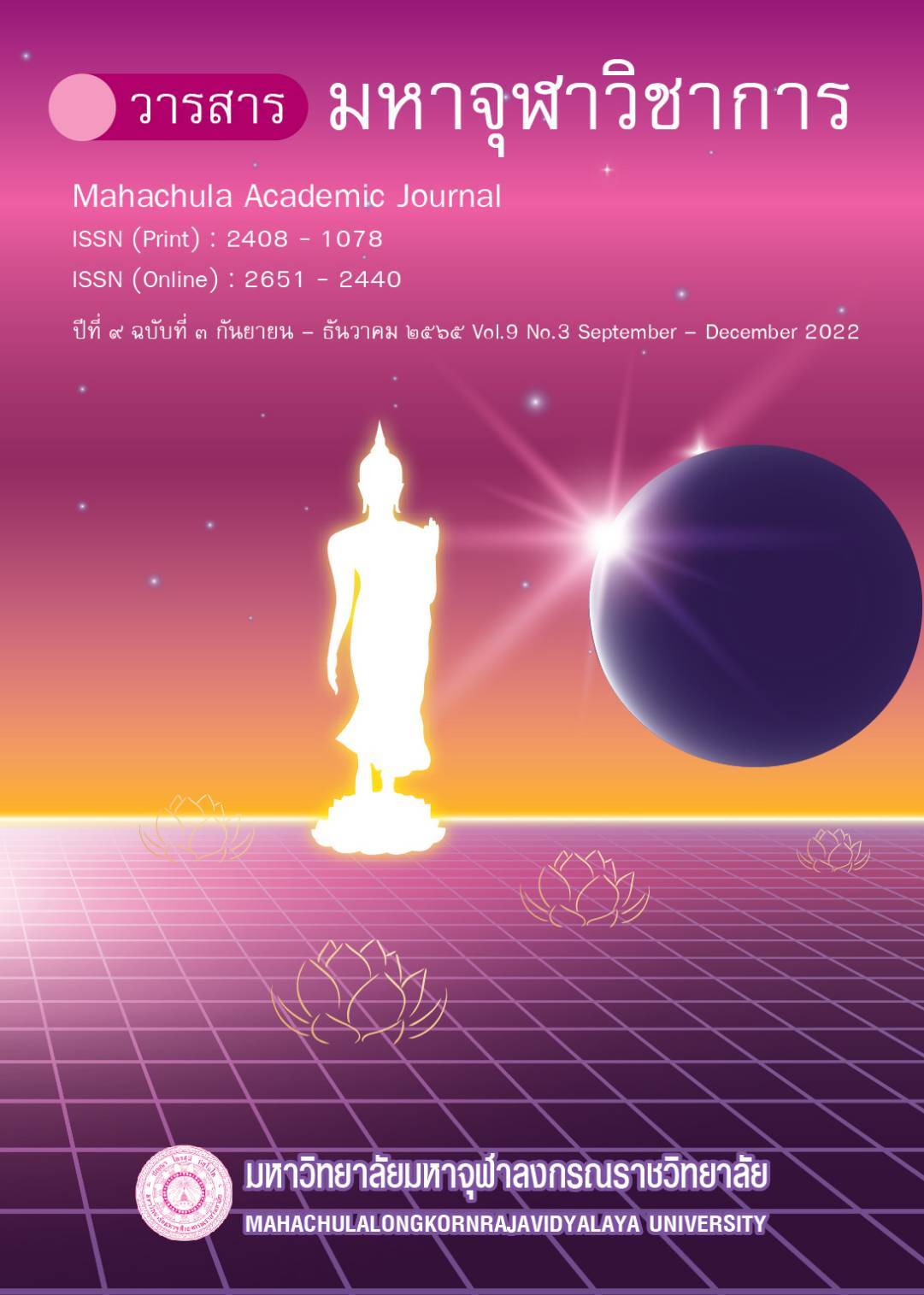Buddhist Leadership: In the Era of Changing World
Main Article Content
Abstract
Buddhist leadership is about understanding of the contemporary issues in the changing world. Enlightened leadership consists of multi-skills involved with human resource management, communication, technology, teamwork, inspiration, and supporting the abilities among those he works with. Good leadership is mainly on responsibility of both working and living. Responsibility is the main concern of acceptability. An effective and efficient leader could deal with precious problems. He is capable to analyze causes of problems and to manage appropriate solutions. With this effective managerial performance, it leads to reduce damages and conflicts in the organization. A person having Buddhist leadership quality is able to apply the principles of Buddhism to resolve any conflicts and to create harmony in the society. Similarly, the Buddhist philosophy is adapted to cooperation in working and sharing ideas, and also living with peace and brotherhood for welfare of society. Effective and efficient leadership needs the qualification of Buddhist management in practical leadership occupied by precepts, wisdom, goodness, knowledges and abilities. A person having Buddhist leadership quality is capable to persuade his colleges to make collaboration and convey the organization to success.
Article Details

This work is licensed under a Creative Commons Attribution-NonCommercial-NoDerivatives 4.0 International License.
References
กวี วงศ์พุฒ. ภาวะผู้นำ. กรุงเทพมหานคร : ศูนย์ส่งเสริมวิชาชีพบัญชี, ๒๕๓๕.
เถาวัลย์ นันทาภิวัฒน์. หลักการจัดการ. กรุงเทพมหานคร : จุฬาลงกรณ์มหาวิทยาลัย, ๒๕๒๑.
ทัชชกร แสงทองดี. “คุณลักษณะภาวะผู้นำเชิงพุทธ”. วารสารวิจัยวิชาการ. ปีที่ ๑ ฉบับที่ ๓ (กันยายน-ธันวาคม ๒๕๖๑) : ๓๔-๔๔.
พงษ์ศักดิ์ ปัญจพรผล. องค์การและการจัดการ. กรุงเทพมหานคร : สถาบันราชภัฎนครปฐม, ๒๕๔๒.
พระธรรมโกศาจารย์ (ประยูร ธมฺมจิตฺโต). พุทธวิธีบริหาร. กรุงเทพมหานคร: มหาจุฬาลงกรณราชวิทยาลัย, ๒๕๔๙.
พระเทพปริยัติเมธี. “ภาวะผู้นำเชิงพุทธกับการจัดการความขัดแย้งในสังคมไทย”. รายงานการวิจัย. สถาบันวิจัยพุทธศาสตร์ : มหาวิทยาลัยมหาจุฬาลงกรณราชวิทยาลัย, ๒๕๕๓.
พระพรหมคุณาภรณ์ (ป.อ.ปยุตฺโต). ภาวะผู้นำ. กรุงเทพมหานคร : บุ๊คไทม์, ๒๕๔๙.
ภิญโญ สาธร. หลักการบริหารการศึกษา. กรุงเทพมหานคร : โรงพิมพ์คุรุสภา, ๒๕๒๖.
ภัชลดา สุวรรณนวล. ทฤษฎีองค์การและการจัดการ. นครศรีธรรมราช : ก พลการพิมพ์, ๒๕๖๕.
รัตติกรณ์ จงวิศาล. ภาวะผู้นำ: ทฤษฎีการวิจัยและแนวทางสู่การพัฒนา. พิมพ์ครั้งที่ ๒. กรุงเทพมหานคร : โรงพิมพ์จุฬาลงกรณ์มหาวิทยาลัย, ๒๕๖๑.
Cattell R.B., Human Relations, (New York: Free Press), 1951 pp. 161-184.
Dessler, G. “Management Principles and Practice for Tomorrow’s Leader”. ๓rd Edition, Pearson Education Inc., Upper Saddle River. Journal of Human Resource and Sustainability Studies, Vol. 1 No. 6 (2014): 1476.
Hellriegel, D. and Slocum, J.W. “Organizational Behavior”. 12th Edition, South-Western Cengage Learning, Mason, OH. Journal of Human Resource and Sustainability Studies, Vol.6 No.1, (2018): 1472.
พรชัย เจดามาน. ภาวะผู้นำการเปลี่ยนแปลงศตวรรษที่ ๒๑: ไทยแลนด์ ๔.๐. [ออนไลน์] แหล่งที่มา : https://www.kroobannok.com/๘๓๓๑๒ [๒๓ มกราคม ๒๕๖๕].
ภาวะผู้นำไม่ใช่เรื่องของตำแหน่ง. [ออนไลน์] แหล่งที่มา : https://www.seasiacenter.com/th/insights/leadership-isnt-about-job-position/[๒๓ มกราคม ๒๕๖๕].
ภาวะผู้นำในศตวรรษที่ ๒๑. [ออนไลน์] แหล่งที่มา : https://kctathailand.com/news- [๒๓ มกราคม ๒๕๖๕].


